Are you wondering how to rank your website in the top positions on Google? If so, you’ve probably come across the term “domain authority”. What exactly is domain authority, and how do you increase it for your website?
For anyone working on SEO (search engine optimization), it’s important to know that domain authority is not one of the Google ranking factors itself. Still, the tactics you might use to increase your domain authority also improve your SEO and positive ranking signals.
In this article, we’ll go over what domain authority is, how important it is for ranking your website in search engines, and how you can boost it.
We’ll go over:
- What is Domain Authority?
- What is a Good Domain Authority Score?
- How is Domain Authority Calculated?
- How to Increase Domain Authority
- How Do You Check Domain Authority?
Domain Authority Video Walkthrough
What is Domain Authority?
Domain Authority (DA) is a metric developed by Moz to predict how well a website will rank on search engine result pages (SERPs). DA scores range from 1 to 100, with higher scores indicating greater potential for ranking. So, it’s a measure of the strength or “authority” of your domain.
Using domain authority as an indicator of how you’ll rank compared to your competitors is helpful, but note that Google does not use it to determine where to rank your website.
Don’t confuse domain authority and page authority, as there’s a slight difference between the two.
Domain authority shows your entire domain’s (and subdomain’s) ranking strength, while page authority looks at the ranking ability of individual pages.
What is a good domain authority score?
A good Domain Authority (DA) score depends on your industry and competition. Generally, a DA score between 40 and 50 is considered average, 50 to 60 is good, and over 60 is excellent. Higher scores indicate stronger potential for ranking, especially in competitive niches.
To give you an idea, popular websites with many visitors and backlinks, like Google, Apple, or Microsoft, will have a high DA (between 90 and 100).
On the other hand, if your website is new, your DA will be low (possibly between 10 to 20).
In general, it’s easier to improve your DA when it’s on the lower end. As it increases, it gets harder and will take time and patience.
Instead of shooting for a certain number for your domain authority, look at your direct competitors. Average domain authority will vary across industries, so it doesn’t make sense to name a certain number as “good.”
Remember, Google doesn’t use domain authority as a ranking signal. However, improving your domain authority will help your ranking signals (like backlinks and high-quality content), too.
How is domain authority calculated?
According to Moz, domain authority is calculated by comparing your domain’s appearance in search results with your competitors’.
Here’s how Moz describes its domain authority score calculation:
“…the calculation of a domain’s DA score comes from a machine learning algorithm’s predictions about how often Google is using that domain in its search results. If domain A is more likely to appear in a Google SERP than domain B is, then we would expect domain A’s DA to be higher than domain B’s DA.”
The most important factors for domain authority include:
- Link Profile – This includes your web page’s internal and external links. So, if your post links to high-authority websites and also gets linked back to by reputable sites, you’ll build up a great link profile.
- Root Domains – When looking at your link profile, Moz also looks at the number of unique backlinks. Let’s say you have 100 links, but they’re from a single website. Moz will consider this as 1 root domain. So, it’s important to get backlinks from many different high-authority websites.
- Spam Score – This is another metric that Moz calculates to determine how spammy a website might be. It compares a site with others and looks at its backlink profile.
Now that you know how domain authority is calculated, let’s dive into our guide on how to improve it.
How to Increase Domain Authority (5 Ways)
As you start to work on boosting your website’s domain authority, remember that it’s a long-term strategy. It’ll take time! Don’t expect it to improve just a day after you make significant improvements. It’ll take weeks or even months while you continually build great links and make improvements.
Here are the best ways to increase your site’s DA:
1. Acquire High-Quality Backlinks from Authority Sites
As you probably noticed, backlinks play a huge role in calculating domain authority. Not only that, but backlinks are one of Google’s most important ranking factors.
A study by Ahrefs showed that 90% of websites don’t get any organic traffic because they lack backlinks.
There are tons of ways you can get backlinks to strengthen your link profile.
To start, take a look at your top referral sources. These are sites that link to you that you’re getting traffic from. Can you get more links from these domains? What are some similar sites that might find value in linking to you? Start reaching out.
Finding your top referral sources is incredibly easy if you’re a WordPress user. Install MonsterInsights to get a top referral report (and a lot more) right inside your WordPress dashboard.
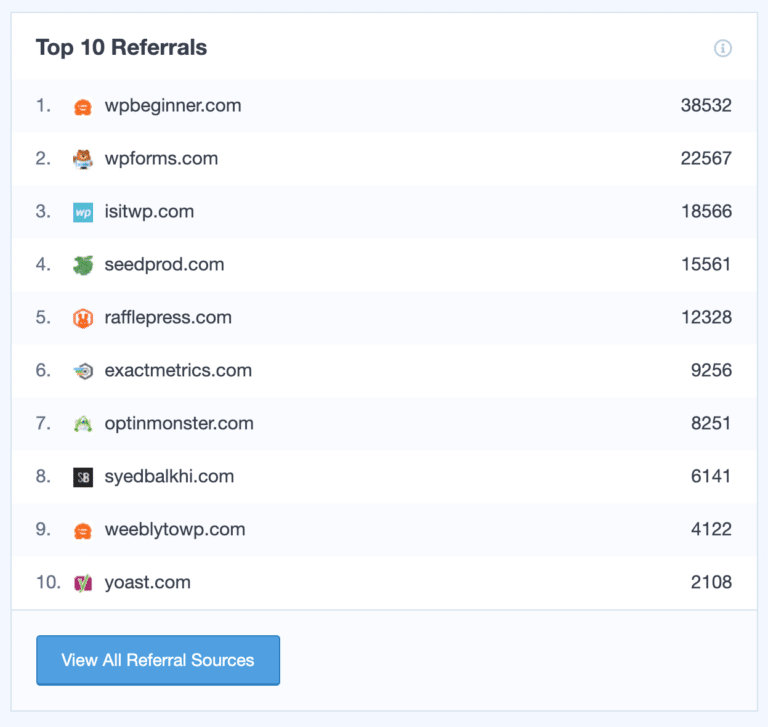
MonsterInsights is the best Google Analytics plugin for WordPress. It will show you a whole bunch of helpful reports right inside your WordPress dashboard and help you set up advanced tracking features that Google Analytics doesn’t come with out of the box.
Track Your Most Important Metrics Now
Another great method for building backlinks is ethically spying on your competitors, examining their backlink sources, and attempting to acquire links from the same websites.
For more details, check out our guide on how to get more backlinks.
2. Create Killer Content That’s Link Worthy
The second way to increase your domain authority is by creating great content that other sites will want to link to.
Creating high-value content that people find helpful will lead to more sharing. This increases your chances of getting backlinks from high-authority websites, like education institutes or governmental bodies.
With links from different sites, you’ll also boost your number of linking root domains, which will contribute toward securing a higher DA.
Not sure what new content to create? Start by looking at the most popular pages on your site. What types of content are bringing in the most traffic? What pages are your visitors engaging with the most?
Try to create more of the content that your audience likes the most. Tools like SEOBoost can help you create high-quality, optimized content that aligns with SEO best practices, boosting your chances of improving domain authority.
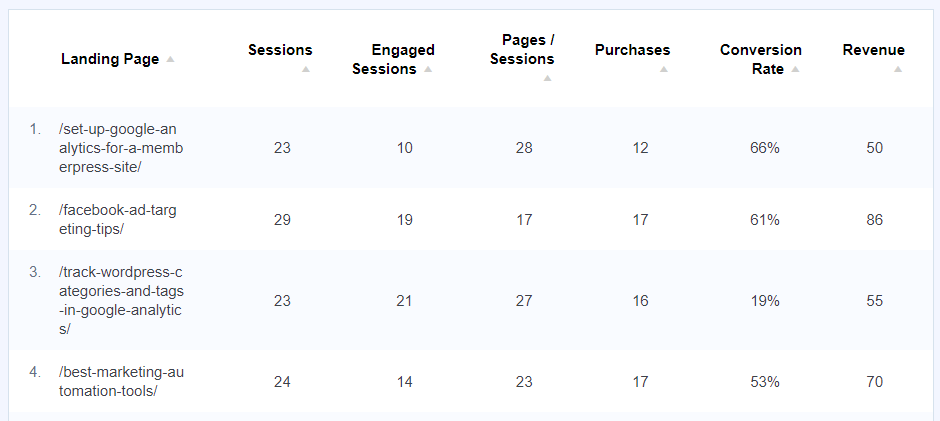
WordPress users can use MonsterInsights to see your top pages right inside your WordPress dashboard.
3. Audit Your Site and Remove Bad Links
While inbound links are vital for your website’s DA and rankings, having bad links can lead to more harm than good.
Links that are from a spammy website can decrease your website’s domain authority. And in some cases, it can even lead to a penalty from Google.
To keep that from happening, you should audit your site for toxic links and remove them as quickly as possible. You can use different SEO tools to identify harmful links by going through a complete link profile of your website.
And if you can’t remove those links, you can use Google Search Console to disavow or ignore those links. As a result, Google’s crawler won’t take into account any unnatural or spammy backlinks when indexing.
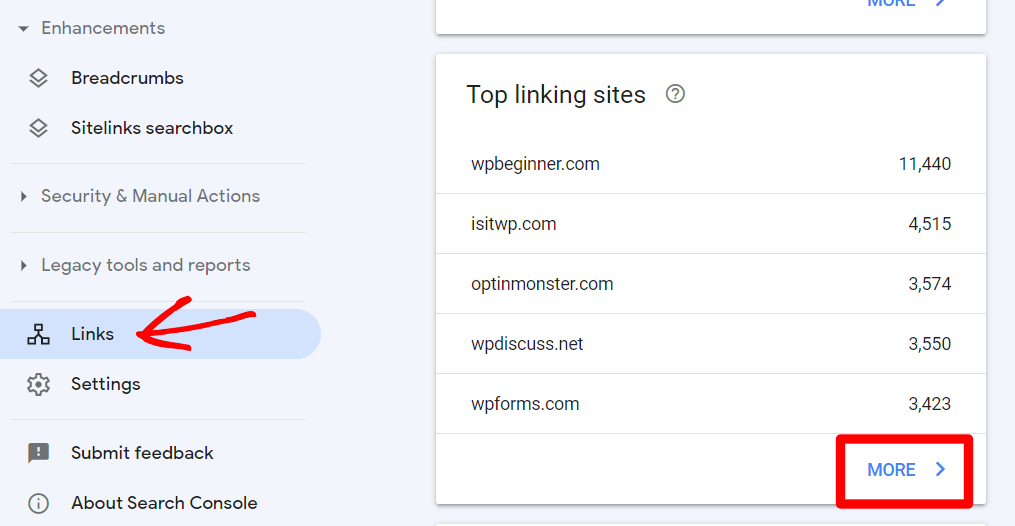
4. Optimize Your Website Structure and User Experience
Keeping your website user-friendly and easy to use is a great way to work on increasing your domain authority.
With a proper structure, search engines can easily crawl your web pages and index them in search results, and users can easily find what they’re looking for and are more likely to link to you.
To help search engine crawlers, you should create a sitemap. A sitemap contains all your important pages and assists search engines in navigating through your site and indexing your pages with ease.
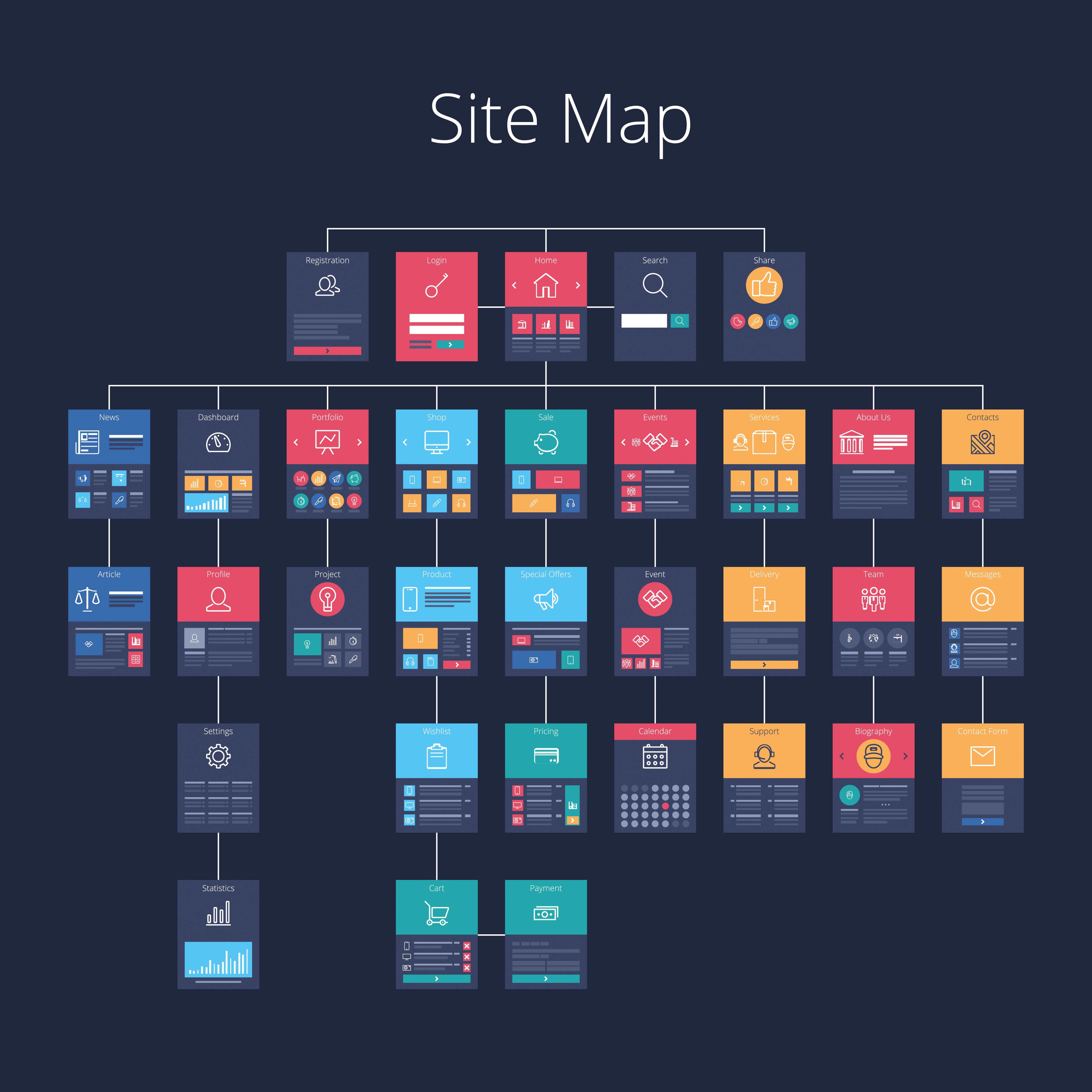
As for improving your site’s user experience, you should start by focusing on optimizing it for mobile.
Google is mobile-first, which means it will look at how well your website performs on mobile first. So, it’s important that your site functions properly on mobile devices and loads quickly.
Then, you must ensure that your site is safe. You can do that by getting SSL certificates and moving your site to HTTPS. You can also get hold of the best WordPress security plugins like Sucuri, which offers many features like a web application firewall.
5. Improve Your Internal Links
Another way of improving your site’s user experience (and overall SEO) is by focusing on your internal link structure. You can keep your visitors engaged with links directing users to related pages on your site.
Internal links also make it easier for search engine bots to crawl your website, which helps index your pages.
Another benefit of having a proper internal link structure is that it passes “link juice” from one page to another.
Link juice is an SEO term that refers to the value of a page passed to other web pages. It gives a vote of confidence to the search engine, as more links pointing towards a page show that it’s trustworthy. All of this adds up to boosting domain authority.
To improve your internal linking strategy, WordPress users can use a plugin like All in One SEO.
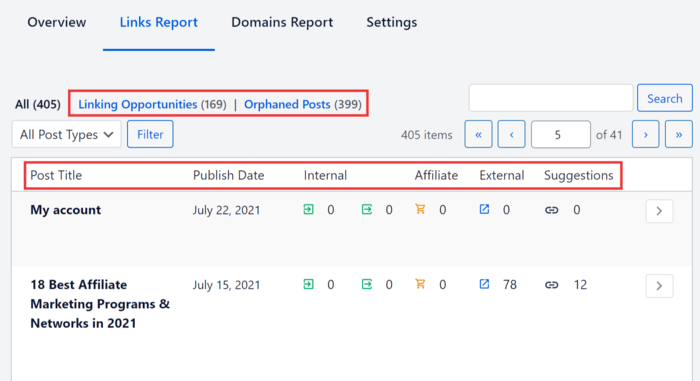
AIOSEO’s Link Assistant addon will automatically generate an internal links report for your site and offer suggestions of relevant pages you can link to.
Start with Analytics
You can improve your domain authority without accurate website analytics to tell you what’s happening on your site.
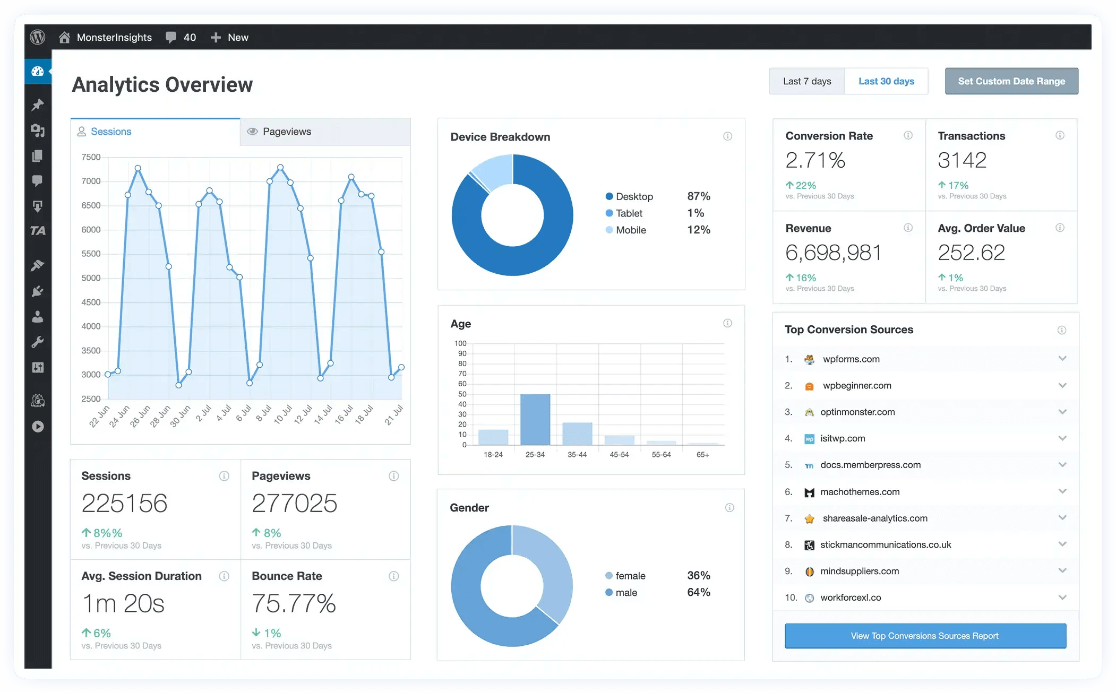
WordPress users, install MonsterInsights today to get started with easy-to-understand, straightforward Google Analytics reports. Choose the license level that’s right for you, or get started with the free version of MonsterInsights.
That’s it!
That’s the end of our domain authority guide. You might also want to read:
Google Tag Manager vs. Google Analytics: Everything to Know
7 Best Google Analytics Reports for Business Growth
How to Use Google Analytics Annotations in GA4 + WordPress
Organic Search in Google Analytics: Quick-Start Guide
Not using MonsterInsights yet? Get started now!
Finally, don’t forget to follow us on YouTube for more Google Analytics and SEO insights.
Domain Authority FAQ
How often is Domain Authority updated?
Moz typically updates Domain Authority metrics approximately once per month. Therefore you’ll see fluctuations in your website’s score.
How is Domain Authority calculated?
Domain Authority is calculated using over 40 factors, including:
- The number of linking root domains to your website.
- The quality of those links.
- MozRank and MozTrust.
Is Domain Authority a Google ranking factor?
No, Domain Authority is not a Google ranking factor. It is a metric developed by Moz, a third-party SEO tool provider. Although it’s not used by Google, it can be a useful indicator of your site’s overall SEO strength and how competitive it is.
Can I use Domain Authority to assess the SEO value of links?
Yes, DA can help you evaluate the value of potential backlinks. Links from sites with higher DA scores tend to be more valuable than those with low DA scores. However, it’s important to look at the relevance of the site and the context of the links, not just DA.
How do I improve my Domain Authority score?
Improving your DA involves improving your overall SEO strategy. Here are some ways you can improve your website’s DA:
- Earn high-quality backlinks: Focus on acquiring links from authoritative, relevant websites.
- Create high-quality content: Produce well-written, informative, and engaging content that attracts links and shares.
- Improve your technical SEO: Ensure your website is fast, mobile-friendly, and easy for search engines to crawl.
- Remove Toxic Backlinks: Use a tool like Google Search Console to review your inbound links and disavow any bad ones.
- Promote your content: Use social media, email, and other channels to reach a wider audience.
- Be patient: Building Domain Authority takes time and consistency, so it will not improve overnight.
Should I use other SEO metrics in addition to Domain Authority?
Yes, DA is just one metric. It’s important to use a range of SEO metrics to get a full picture of your SEO performance. Consider using metrics like:
- Organic traffic
- Keyword rankings
- Backlink profile
- Page speed
Does Domain Authority tell the whole story about my website’s SEO performance?
No, while Domain Authority is a good indicator of how competitive your site is, it doesn’t represent the entirety of your site’s SEO performance. It’s one piece of the puzzle, and you will want to consider other factors when measuring SEO results.
Is there a way to check Domain Authority for free?
Yes, you can use Moz’s Link Explorer or a free DA checker tool.
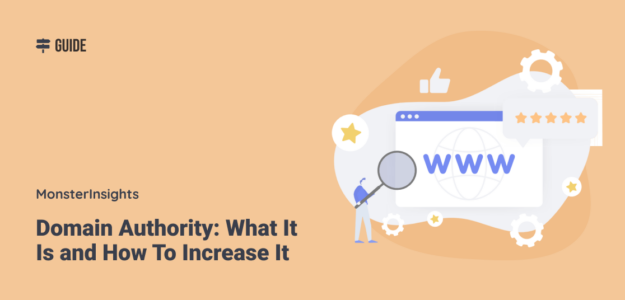
Hey Thank You so much! I have been looking for my web wiz for my biz DA to increase, Great resource.
nice post
Very informative and helped a lot in gauging our domain authority and what to improve on
Thank you for your information. It’s very helpful.
Your content is very informative and useful for us. Thank you for sharing such great information. Keep sharing.
Is link building the only way to gain authority
Very appreciated! I was so anxious about my website domain authority, so I searched for how to increase it and I reach here. You explained everything about domain authority in a really simple way. Excellent points you have covered with this article and now I can increase my blog’s DA by applying these points. Many professional SEO experts and developers create a new site, produce high-quality content and distribute it into social media and after a few days their website and blog content go viral very fast and the site has ranked up at the top of Google search results.
I think having high-quality backlinks is the most important factor that makes a great impact on your site domain authority. Patience is important as we get frustrated with seeing domain scores. I will surely look into all the topics and implement them in my blog. Of course, there are loads of other factors that affect SEO, high quality backlinks are absolutely essential for a good DA level.
Anyways, thank you very much! I find this post to be very useful!
Thanks, Vrushali! We’re glad you stopped by and enjoyed our post!
Thanks for this info…👍
Trully helpfull
So informative…I learnt alot of ideas from this content… thank you and share more of it.
I never thought your post could be helpful like this. I appreciate your service
I have created backlinks..its been a month but the DA is not increasing
Any suggestion??
It takes time. Growth doesn’t happen over a short period
Our team was looking for Domain Authority, we found your blog very helpful. Nicely explained keep up the good work.
Thank You.
I read the complete article and it’s Really awesome and useful for me.
Thank you so much.
This is super informative. Got two new things to implement right away. Thanks a lot for sharing.
I have searched hundreds of blogs that talk about Domain authority, Monster Insight has explained it in a simple but detailed way! I cannot wait to start my journey to increase my DA.
Very appreciated! You explained it in detailed way as well as very simply. It’s really useful for me. Thanks a lot.
Very nice, this will help me alot.
Thank you for clarifying how domain rating works. Some of the tools mentioned in this post are showing different results when checking website metrics.
Hi Maria,
Thanks for your comment! That’s because they’re all just estimating – none of these tools is perfect. Only analytics can really tell you exactly how much traffic a website gets.
Thank u so much for your guidance.
Thank you so much for sharing such a valuable information. Now I’ll follow your mentioned techniques to increase the domain authority of my website.
Thank you for sharing this. I will put it into practice.
How many Guest posts should I have to do to reach my website from DA 42 to DA 65?
Does anyone have a Specific answer to this Question?
It will differ according to your guest blogs content quality and published websites DA. But it will be a long path. If you interest in writing HR related guest blog and have a do-follow backlink the check Better HR Guest Blogs.
I was so confused about DA PA. But after reading this article, I cleared my doubt. Thanks for sharing
I am a beginner blogger and started my own project please guide me.
That was helpful. I was trying to figure out why my PA was high but my DA was low. Is this a ratio thing? Like I have a lot of pages, and many don’t have backlinks? I wish you would have touched on TF and CF also.
This is very helpful information.
Very Informative Post.
Very good info
Excellent information, really informative
Your content is very informative and useful. Thanks for sharing.
Thanks for sharing this helpful information with us
Let’s see if the author is going to reply me.. I will appreciate… I have a expired domain which is on 10 Domain Authority, Zero Spamming, Zero Penality, Zero Ban etc from anywhere on internet.. Now my question is if I do high quality back links and try to build profile on the internet
will my rank increase ? My topic is how to etc… like tech and fixing issues.
Thanks for sharing this helpful information with us
Very good information
I’ve tried your tips plus many other techniques but my DA remains unchanged. Should I hire a professional to do it?
This is very informative page about DA,PA .It clear my whole doubt.
on point number 1 regarding backlinks I think it’s a bit complicated. because many also say that this backlink is not fixed, it can have a good impact and can have a bad impact. is there a more detailed explanation of how good according to SEO rules?
I have done SEO for 2 website but on first website DA -11, PA – 20 and second website DA – 7, PA – 15. Why PA is getting high authority?
Very much I informative
Thanks a lot.
Nice Article
It is really a good article. Crisp, nice and informative.